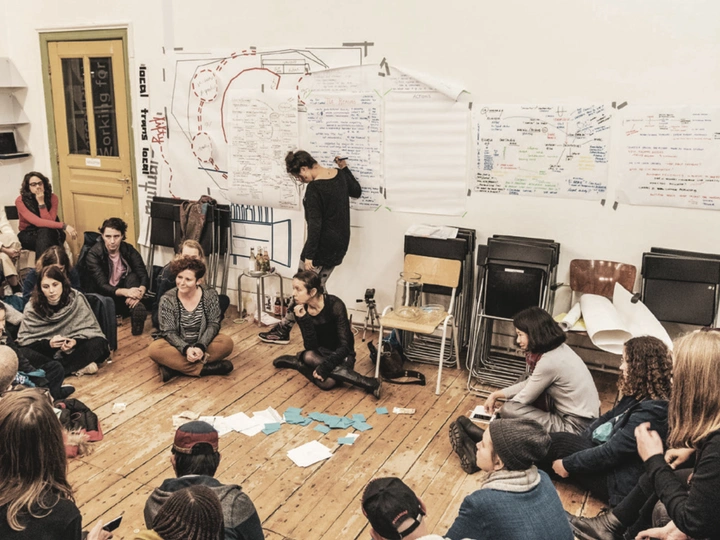Infrastructures of Care: Commoning Cultural Spaces

Agnese Politi is a curator, spatial practitioner and researcher whose work explores commoning as a situated, relational force for transforming the material and immaterial dimensions of contemporary art institutions. Positioned at the intersection of curatorial research, spatial inquiry and pedagogical processes, her practice engages with infrastructural care, experimentation, and the co-production of knowledge. She collaborates with arts and education organisations on research-led and socially engaged projects. Agnese is currently undertaking a practice-based PhD at Central Saint Martins, University of the Arts London, titled Commoning Art Institutions: A Counter-Hegemonic Perspective in Western Europe, and is affiliated with the Afterall Research Centre.
This proposal grows out of my practice-based PhD research Commoning Art Institutions, which investigates how commoning can reposition European art institutions historically shaped by colonial-modern logics of authority, appropriation, and exclusion. It responds to a pressing challenge: many cultural organisations adopt participatory rhetoric and claim to be “public,” yet rarely address the deeper infrastructures of power that define their operations.
The project explores how commoning might take infrastructural form within art institutions, enabling processes of negotiation, redistribution, and structural reconfiguration. It asks: What would it mean for a museum, a cultural centre, or an art school to act as a commons? How can care and shared governance be spatialised within these sites?
Through curatorial and spatial practices—assemblies, collaborative mappings, and para-site interventions—the work creates openings within existing frameworks while prototyping alternative ways of organising, hosting, and relating. These experiments draw on feminist, anticolonial, and ecological epistemologies to reimagine institutions as regenerative infrastructures: living systems that sustain reciprocity and interdependence rather than extractive hierarchies.
By approaching institutions as living infrastructures, the proposal also aligns with principles of de-growth and environmental responsibility, envisioning cultural practices that regenerate rather than consume resources.
Within the LINA network, this proposal would become an open framework for collaboration, offering methods that can be adapted and reimagined in dialogue with each member — from museums and festivals to universities and research platforms. It seeks to create conditions for shared learning and co-creation, allowing each context to shape the work while contributing to a wider culture of care and commoning.